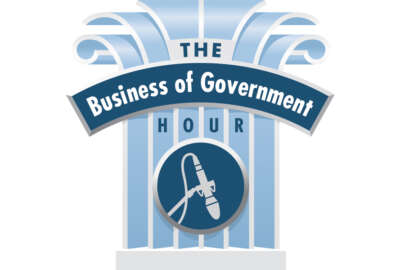The future of work is coming. Are federal managers ready for it?
Federal employees are coming back to the office. Not all of them thrilled about it.
Federal employees are coming back to the office. Not all of them are thrilled about it.
The dissatisfaction is more than just anecdotal grumbling. A series of governmentwide “pulse surveys” are offering a more real-time snapshot into how federal employees feel right now.
It’s a different approach to gauge federal employee satisfaction than Federal Employee Viewpoint Survey (FEVS).
The Office of Personnel Management released the latest FEVS data last week, but it’s based on responses that were gathered last year, and doesn’t offer much insight into how the federal workforce feels right now about office reentry.
Employees at the Social Security Administration, for example, responded to the pulse surveys at a higher rate than the federal workforce average and gave their agency some of the lowest ratings.
Out of the 24 agencies in the survey, SSA ranked among the lowest on topics like employee engagement and return-to-office communications.
Those metrics filtered up to SSA Acting Commissioner Kilolo Kijakazi, who in an all-staff email to employees said she’s concerned about the data.
“Although I am encouraged to see a slight improvement in the opinion that your workload is reasonable, I remain concerned about the level of exhaustion and lack of engagement you report feeling at work,” Kijakazi wrote.
The General Services Administration, on the other hand, has been getting top marks on the pulse survey. Nearly 40% of GSA’s workforce took the survey, and consistently rated the agency higher than the governmentwide average on questions related to office reentry.
While there are many variables in play, one notable point is that GSA has been a leader in telework even before the pandemic.
GSA Chief Human Capital Officer Traci DiMartini, in a panel on the future of work last week, said a telework-savvy federal workforce has raised the bar on what it means to be a manager in government.
“What we have had is a fundamental resistance to not want to change how we work. And the last few years have forced us to look at how technology can keep us interconnected and have a more remote and hybrid workforce, and also how to keep managers interconnected with their employees,” DiMartini said at ATARC’s GITEC summit in Annapolis.
GSA brought more than 1,600 people onboard virtually since the start of the pandemic — including DiMartini, who served as the CHCO for the Peace Corps prior to September 2020.
Matisha Montgomery, the chief learning officer for the Department of Housing and Urban Development, said the future of work also requires an upskilling of federal managers.
The Biden and Trump administrations have looked at ways to upskill the federal workforce to learn technical cybersecurity and data science skills. But Montgomery said managers need training on interpersonal skills and how to lead people.
“Lots of people call them soft skills. I like to call them durable skills, because they’re going to carry you no matter where you go,” she said.
Federal employees promoted into management positions, she added, often struggle with the transition from being great at their jobs, to making sure their team is doing a great job.
“We never focused on what it would mean for them to step into a leadership role as a supervisor or manager. And oftentimes, they aren’t really all that interested in taking on those aspects of the role,” Montgomery said.
Nina Bianchi, former chief of people and culture at the Food and Drug Administration, now a solutions principal for Medallia’s public sector practice, said agencies more receptive to remote work will be able to recruit from a broader pool of talent
“That kind of service shouldn’t be limited to people who can just physically move to D.C. You should be able to work and serve in leadership roles, frontline roles, anything that you’d like to do in public service across the nation. And I think the pandemic forced us to see that as indeed possible,” Bianchi said.
Nearly Useless Factoid
Brussels sprouts, kale, cauliflower and cabbage are all varieties of a single plant species.
Source: Vox
Copyright © 2025 Federal News Network. All rights reserved. This website is not intended for users located within the European Economic Area.
Jory Heckman is a reporter at Federal News Network covering U.S. Postal Service, IRS, big data and technology issues.
Follow @jheckmanWFED






